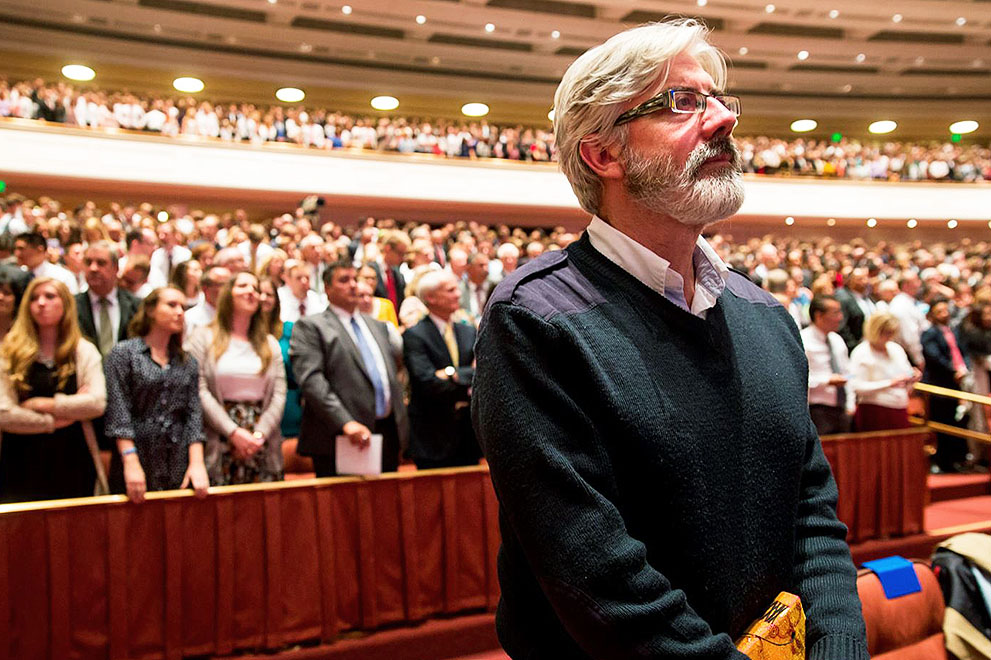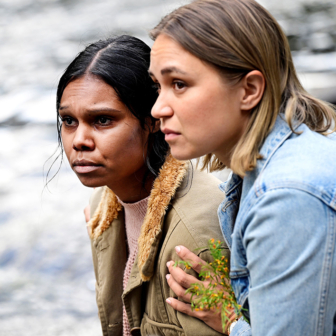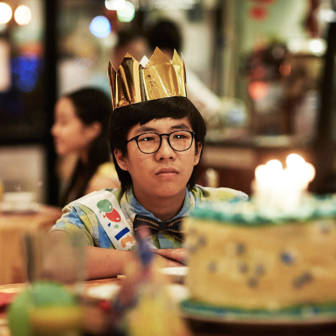The life cycle of the television comedian exhibits some curious patterns. There is the early career stand-up phase, then the knockabout phase, with appearances in a sitcom or as part of a team of larrikins smart enough to get themselves a TV series. From there, though, the route to stardom almost invariably involves being chained to a desk, often in a suit, for an extended period.
Having anchored six seasons of SBS’s Mad As Hell, Shaun Micallef was overdue for release. You don’t get to season six of anything without a strong following – the ratings remained buoyant throughout, peaking at over 700,000 in 2016, when the program won a gold Logie – but Micallef has never seemed quite in his element behind that desk. He is no Jon Stewart, and the format inevitably raises comparisons. Too often the monologues came across as heavy-handed rather than hard-hitting.
With vigilantes on perpetual alert for “bias,” the cultural environment of our national broadcasters has perhaps become too constrained for political invective, which can’t take off without a certain level of anarchic wind in its sails. Perhaps as a result, the best polemical monologues in the past couple of years are those delivered by Waleed Aly on Ten’s The Project. Micallef himself has an anarchic streak, but it tends to emerge most effectively impromptu, often when he plays the saboteur as a guest on someone else’s program. Certainly he’s a talent, but one in need of a freer rein.
This opportunity comes with his new three-part series for SBS, Stairway to Heaven, at the start of which he announces, “I am going to lose myself in order to be found.” Don’t be put off by the cliché, or the crassness of the title: the “stairway” is an itinerary that takes him to live with a Mormon family in Utah, undergo “spiritual surgery” at the Casa de Dom Inácio in central Brazil, and endure survival training with the End of Days shock troops in the woods around Arkansas.
Produced by Artemis International, the series grew out of Gods, Gurus and the Ganges, aired in 2014, in which Micallef goes in search of a guru on, yes, the banks of the Ganges. As he swans around “on a curious journey to find the meaning of life,” looking debonair in a rather fetching version of the Hindu dhoti, the program itself has the look of a naive orientalist travelogue. We are introduced to a picturesque scene of milling crowds at the Chariot Festival in the port city of Puri. Fifty-foot-high floats celebrate a multitude of deities in spangled effigies. “The Hindu faith has me completely flummoxed,” Micallef says to camera. Not the most promising of opening remarks, but it’s at least candid – and candour, it turns out, is not to be underestimated as a guiding principle on this curious journey.
Writer/director Russell Vines, best known for his work on Who Do You Think You Are?, is used to dealing with unexpected storyline turns arising from encounters between the featured celebrity and those who help peel back the layers in the identity quest. Micallef clearly relishes a freewheeling structure that allows his course to be set arbitrarily by an assortment of gurus and masters. In Gods, Gurus and the Ganges, the first turning point occurs about half an hour into the program, when he is admitted to the presence of a maharaja who, he hopes, may administer some lightning bolt of sudden insight. “I’d like it to be like that,” he says. Instead the guru simply puts a hand on the top of his bowed head and keeps it there in what Micallef later describes as “a twenty-five-minute challenge to my back condition.” When we cut to the moment of his release, it is clear that some real change has come over him. Tranquillity and disturbance are somehow evident in equal measure as the shot closes in on his face.
That we are able to witness such a moment testifies to an exceptional degree of trust between Micallef and the camera. Weary as we may get of celebrity culture, there is no denying that this capacity to just be in front of a camera is rare, and its impact is hypnotic. Because he works in a profession that relies on being recorded and played back constantly, Micallef says at one point, he feels he knows himself quite well. But what is happening here is more like a radical defamiliarisation of the self, and from this point the travelogue turns into an odyssey. Under instructions from the guru, he embarks on a pilgrimage into the Himalayas, culminating in the ordeal of a solitary climb to the point where the Ganges has its source.
It’s easy to see how this pilot gave rise to the idea of a series in which Micallef would undertake different kinds of odyssey through radically different modes of faith and religious practice. None of the programs in the follow-up series has the raw quality of self-exposure that comes across from the first, but that is not something that can be replicated. Instead, we have a more investigative approach, still curiosity-driven, but the curiosity has a social dimension.
Seeking to immerse himself in “worlds of extreme belief,” Micallef immerses himself also in some bizarre community environments, starting amid an assembly of 20,000 people in the Mormon conference centre in Salt Lake City. He seeks to approach it with the same openness to the Mormon world as he brought to his quest in India, but inevitably he brings a greater degree of sceptical detachment. The Mormon story, with its accounts of a Messianic appearance in America in the early 1800s, is not easy for an educated twenty-first century Australian to swallow, and the exploration comes to be driven by the question of how the Mormon faith retains its hold on those who live by it.
Micallef joins in a “family home evening,” in which parents and children discuss points of faith and play hymns accompanied by guitar and mouth organ. He poses a few leading questions. Do they literally believe that the Garden of Eden was in Missouri? The answer involves some earnest talk about the movement of sheep and flocks. There’s not a flicker of irony or embarrassment from anyone in the room. The beliefs associated with the Book of Mormon are only marginally less fantastic than those promoted in Scientology through the writings of L. Ron Hubbard, but they govern family life, education and community practices without, apparently, the need for the cultish constraints that characterise Hubbard’s Scientology.
These are lovely people, Micallef comments, but their lack of cynicism is strangely disturbing. There’s a limit to how much he can push the questions about what they believe, so he debriefs to camera. He likes a bit of cynicism, he says. Even cruelty. Television is a cold and cynical medium, as Micallef commented in a recent interview, but people must be allowed to speak for themselves. The core strength of this series is in its management of cynicism, even when trying to get value out of the wackier belief systems seems like trying to get nutritional value out of chicken nuggets.
Micallef’s response to the wall of blandness he encounters in Salt Lake City is to drive out across the snow-bound Moab desert in search of more radical exponents of the faith. In a small enclave of houses blasted into the side of a rock lives a community that includes one of the direct descendants of the founder of the religion. This man, a quietly spoken pragmatist with two wives and seventeen children, demonstrates his principles by getting Micallef to take a literal leap of faith on a cable glide across a canyon. No spiritual breakthrough takes place, but the rapport between the two men is genuine. As he leaves, Micallef speculates about how these people provide for a cricket-team-and-a-half of children under one roof in the middle of nowhere, yet no one seems stressed.
Still determined to penetrate the enigma of unshakeable faith, Micallef attends an Umbanda ritual in Brazil in the second program of the series. Witnessing the participants, who are possessed by the spirits of the dead, is about as far as he could get from the bland benevolence of the Utah communities. As he watches, there’s another moment in which he seems overcome, unable to understand his own powerful emotional reaction as one of the dancers enters a trance state. He wants to go deeper into this world.
So, following advice from one of the Umbanda priests, he finds his way to the renowned Casa de Dom Inácio in Central Brazil, where the presiding figure is a medium known as João de Deus, or John of God. João channels physicians from ancient times, “entities” who guide his hands as he performs healing rituals, including surgeries conducted without anaesthetic or sterilisation. He’s a powerful presence, Micallef attests, and his first appearance among the assembly in the Casa “scares the hell out of me.”
This second program is both the least satisfactory and the most revealing of the series. Revealing because it at once lures and thwarts Micallef’s craving for the transcendant experience, and unsatisfactory because he is not equipped for (or even interested in) the investigative documentary approach that is called for in the face of practices that must be either a miracle or a fraud. It’s a stark alternative, and Micallef’s attempt to find some intermediary interpretation of what’s going on doesn’t really work. He leaves feeling “very uneasy about this place,” then finding, by way of compensation, the “penny drop” realisation that maybe “we’re all just there for everybody else,” an insight that can only be described as… well, bland.
At the start of the third program (which goes to air on 1 February), Micallef goes right to the wacko end of the spectrum, seeking out the placard-carrying Doomsday criers in the streets of Las Vegas. He approaches Brother Ruben, a bulky guy covered in repent-or-perish slogans. How often does someone like that get the invitation to talk seriously about whatever he is on about, let alone in front of a television camera? Ruben becomes almost charming as he responds to the luxury of a few genuine questions.
Out in the Arkansas woods, Micallef finds another breed of End Timers, a Bible-carrying militia who wear combat fatigues and run boot-camps to prepare for Armageddon. Under the tutelage of Pastor Joe Fox – “Pastor with a gun, bet your booty I am” – Micallef gets a crash course in hunting, shooting and fishing for survival, and some stern exposure to Old Testament principles. It’s pure comedy, really, and there are some great lines. “I’d die right now,” one of them says. “I’m going to glory with the heavenly father. But hey… I’ve bought my ticket already. I want to see the whole thing.”
But Armageddon is a theme that runs from the wacko end of the spectrum all the way to the most devout and scholarly doctrinal traditions, and the program follows it across, ending with a memorable, wonderfully filmed sequence on the island of Patmos, where Micallef is taken to the cave in which John the Divine wrote the Book of Revelations and given a brief private sermon on the text by an Orthodox priest, Father Isidorus.
Programs such as this are expensive to produce and make immense demands on presenters and crew, but this is an outstanding achievement, well worth the investment. The economic realities of life with a public broadcaster may decree that Micallef has to return to his desk job, but I hope he can also get more time on the loose. He is a most gifted explorer of disparate human worlds. •




